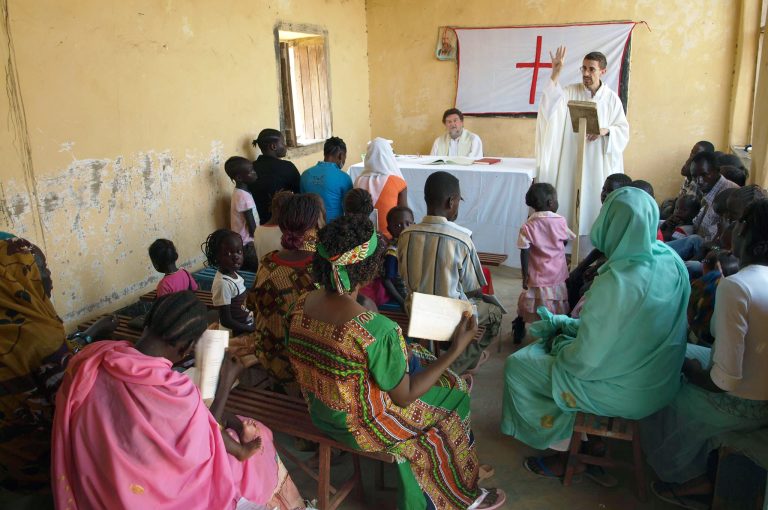SUDAN: Christians facing choice between fleeing and hardship

Christians are fleeing armed violence in Sudan and those remaining are facing extreme difficulties, according to a Spanish missionary.
Father Jorge Carlos Naranjo, a Combonian priest based in Sudan, told Catholic charity Aid to the Church in Need (ACN) that those choosing to stay in conflict zones have been hit by food and water shortages and a lack of electricity, making life in the summer heat almost unbearable.
The civil war broke out in April when the Rapid Support Forces (RSF), loyal to the vice president, began attacking key government buildings and clashed with the Sudanese Armed Forces.
Sudan’s capital Khartoum and other important cities turned into war zones overnight.
Many homes have been occupied by RSF soldiers and hundreds of civilians have been killed and thousands injured in the fighting.
Father Naranjo said that most Catholic missionaries have opted to stay and support their faithful, adding that many lay Christians have fled to safer regions – including the South Sudanese, comprising most of Sudan’s Catholic population, who have returned to South Sudan in droves.
The missionary explained that there is also a large Coptic Orthodox community in Sudan, and some of their churches “have been attacked by RSF”, including St Mary’s Coptic Orthodox Church in Khartoum, “which was occupied and turned into a command centre”.
He said that the Coptic Orthodox Church of Mar Girgis in Omdurman “was also attacked and looted.
“They took several cars and threatened the bishop and one of the priests, trying to force them to convert to Islam.
“Many Coptic workers were also told to convert, but they all refused.”
Father Naranjo added: “The Episcopal Cathedral of All Saints in Khartoum was also attacked by RSF soldiers, and the bishop was sent away, and some of our churches were also looted.”
He also explained that “there are many Ethiopian and Eritrean refugees” in Sudan, some of whom have “moved to cities closer to the borders of their respective countries, where there is also a lot of pressure now because of the significant number of refugees.
“Some Ethiopians returned to Ethiopia, but for others it is difficult.
“For the Eritreans it is even harder, as they cannot return to Eritrea, and Egypt has closed its borders to them.”
He added that international aid organisations are finding it exceedingly difficult to gain access to communities in need of help.
ACN’s assistance for the Church in Sudan over the last decade included religious formation and humanitarian support in refugee camps.
With thanks to Filipe d’Avillez and Maria Lozano
